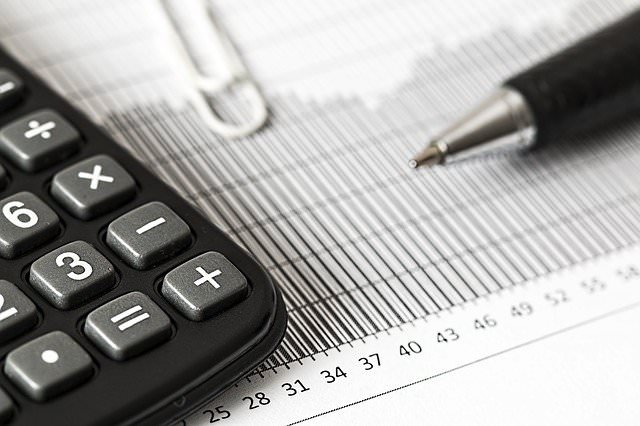Posted by David Falvey on Monday, February 8th, 2021 - 5,239 views
The answer to this question depends in large part on when you obtain the new debt. Generally, it is not advisable to acquire new debt after you file your Chapter 7 or Chapter 13 bankruptcy petition – but before you are formally discharged. There are practical and legal reasons for this.
 As a practical matter, you should take focus on discharging the debts you have in bankruptcy so you don’t get into further trouble. If you file a Chapter 7 bankruptcy, you should avoid any credit card purchases or loans until after the debts listed on your bankruptcy petition are discharged.
As a practical matter, you should take focus on discharging the debts you have in bankruptcy so you don’t get into further trouble. If you file a Chapter 7 bankruptcy, you should avoid any credit card purchases or loans until after the debts listed on your bankruptcy petition are discharged.
If you have emergency medical needs, then you need to take care of those – but you will be responsible for any medical bills or any new bills that you acquire after the filing date.
Related article: What Is The Minimum Debt To File Bankruptcy?
The filing date is the key date. You can discharge debts you had before you filed for bankruptcy provided those debts are listed on the bankruptcy petition. You can amend your Chapter 7 to include omitted up to the time the case is closed.
But what happens if you omit a creditor? If you have filed a no-asset Chapter 7, there is good and strong case authority that the omitted creditor is still discharged because discharge that is granted is as against all your debts.
However, I prefer not to even rely on that case authority. Creditors understand a ‘slam dunk’ better than a legal argument that since the debt was omitted, it was still discharged in a no asset case. See: In re Rollinson, 273 B.R. 352 (2002) Judge Dabrowski; also, In re Boland, 275 B.R. 675 (2002) Judge Lorraine M. Weil.
If you acquire the new debt after your bankruptcy discharge or after you complete your Chapter 13 plan
Once your bankruptcy is discharged in Chapter 7 or you complete your Chapter 13 plan, there are time limits for when you can file another bankruptcy. Creditors will be able to obtain judgments and try to collect against your assets if you fail to pay any new debt obligations – until these time limits have been met.
The time limits are as follows:
- If the first bankruptcy is a Chapter 7 and the second bankruptcy is a Chapter 7 – you need to wait 8 years and 1 day before filing. See: 11 U.S.C. 727(8). If possible, I would wait more than 8 years and 1 day, perhaps I would wait 8 years and one or even 2 weeks, due to the way the 8 years can be counted (Leap Years, and what days are included or excluded in counting 8 years.) See: 11 U.S.C.727(a)(8).
- If the first bankruptcy is a Chapter 13 and you have received a discharge, and the second bankruptcy is a Chapter 13, you need to wait 2 years, plus one day before filing a second Chapter 13. Otherwise, you will not receive a discharge of any debts in your second Chapter 13. See: 11 U.S.C. 1328(f)(2).
- If the first bankruptcy is a Chapter 7 and you have received a discharge, you can immediately file a Chapter 13, but you cannot receive a discharge! Why would someone file a Chapter 7 and then a Chapter 13? (This is called a ‘Chapter 20’ because 7 + 13 =20). You do not need a discharge because the Chapter 7 would have discharged all debts including your credit card debt. When you file a Chapter 13, your house is usually in foreclosure and if you just straight away filed a Chapter 7, you would, also, be ‘squeezed’ to pay on your unsecure debt. A Chapter 13 allows you to pay the arrearage on your home over 60 months and you must continue to pay your regular mortgage payments. But if you, also, must pay on significant unsecured credit card debt, your Chapter 13 Plan might not be feasible. So, to reduce your monthly payment, you can file a Chapter 7 and then file a Chapter 13 and still possibly remove the second mortgage on your home. Since all the debts were discharged in the Chapter 7, you would not have to pay anything on the unsecured debt. If you had to pay on the unsecured debt, it could considerably and significantly increase your monthly payment in Chapter 13. At one time in Connecticut this procedure was allowed and then it was disallowed but today due to a District Court decision, it is allowed. See: U. S. District Court, New Haven, CT, In re: Curwen¸ Civil Docket: 3:15-cv-01824, Judge Stefan Underhill. (Curwen v Whiton Conn, 2016) The timing of filing a Chapter 7 followed by a Chapter 13 is not simple because there is a timing aspect which must be calculated when a person is in foreclosure. It takes seasoned judgment in attempting a ‘Chapter 20’.
- If you file a Chapter 7 and need a discharge of debts in Chapter 13, you must wait 4 years before filing the Chapter 13. See: 11 U.S.C. 1328((f)(1).
- If the first bankruptcy is a Chapter 13 and the second bankruptcy is a Chapter 7, you need to wait six years before filing a Chapter 7 unless you completed the terms of the Chapter 13 by paying at least 100% of the allowed claims or you have paid the unsecured creditors 70% of the allowed claims and you filed the plan in good faith, and it was your best effort. See: 11 U.S.C. 727(a)(9)(A)(B).
Preparing the bankruptcy petition
Because you normally can’t add new debt to a bankruptcy petition, you should bring in all your financial records including collection letters, any claims by debtors, and any information you have about your debts to your meeting with your bankruptcy lawyer. This way the lawyer can help you list all your debts on the bankruptcy petition.
If you omit a bill for whatever reason, you can only amend your petition for approximately 90 days after you file your petition. Once your case is closed, you cannot amount your petition.
If you realize you forgot to include a debt, you can contact your lawyer. The lawyer will then ask that the petition be modified to include the debt you forgot. Provided the debt was incurred before the filing date, courts will often let you add the debt – unless there’s any fraud involved. Generally, the bankruptcy court will grant petitions to include honest mistakes.
If you need to add a debt you forgot to a Chapter 13 bankruptcy petition, then if the petition to add the debt is granted – you may also need to modify your Chapter 13 plan to pay the new debt.
A few areas where new debts may be allowed
There are some cases where a debt acquired after the bankruptcy petition is filed is allowed:
- If your Chapter 13 bankruptcy is dismissed and you file another Chapter 13, you should be able to add new debt that you acquired – if the new debt is between the two filing dates
- If you file a Chapter 13 but can’t keep up the payments, you may decide to switch to a Chapter 7 bankruptcy. Provided you pass the means test, you may be able to add any debts incurred from between the Chapter 13 date of filing and the conversion date
- There may be other unique situations which your bankruptcy lawyer can explain.
The more you have time to prepare, the more likely you’ll get the information about your debts right in the initial bankruptcy petition.
 Attorney David Falvey has been practicing Connecticut Bankruptcy Law for over 25 years and has helped Connecticut residents get through all their financial difficulties while helping them get their finances back on track.
Attorney David Falvey has been practicing Connecticut Bankruptcy Law for over 25 years and has helped Connecticut residents get through all their financial difficulties while helping them get their finances back on track.


Leave a Reply